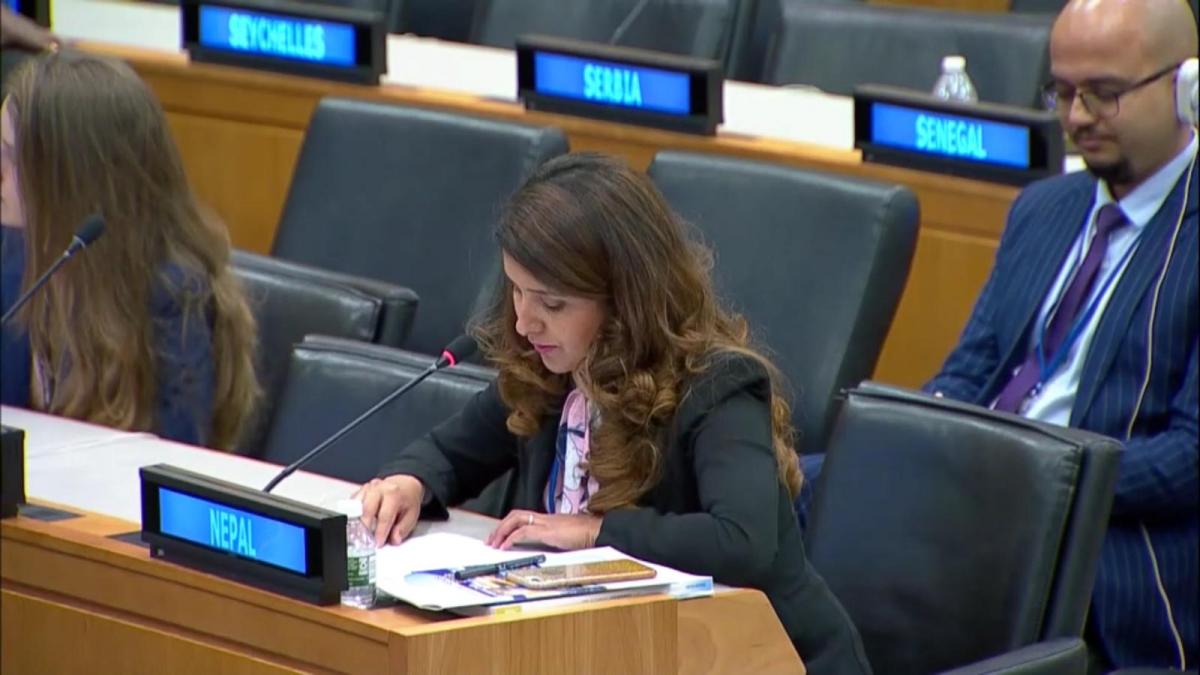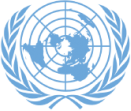
Thank you, Mr. Chair, for giving me the floor.
At the outset, I would like to join other speakers in thanking the Secretary General for the comprehensive reports on this Agenda Item.
I align my statement with those of the Group of 77 and China and the Group of LDCs, delivered by the State of Palestine and Malawi respectively.
Mr. Chair
Today, the world is more globalized than ever. Globalization has brought fundamental transformation in trade, finance and mobility of people as well as ideas, with benefits felt in living standards of several people.
However, there remains a wide asymmetry in sharing of the benefits of globalization. Inequality among and within nations persists. Also, not all nations have been able to rise up in the rung of development.
Furthermore, major discrepancies continue to remain among countries with regard to their infrastructure, technology, assets and skills.
Remarkably, the two major drivers of globalization --namely trade and technology, are going through interesting phases.
First --the increasing trade tension among the large economies is creating further uncertainties and disrupting value chains. Such a tendency to redefine the rules of globalization, with more unilateralist approach is a matter of concern for all. This comes with several spillovers in almost every part of the world. In the globalized and interconnected world, such frictions have ramifications of tremendous scale.
The LDCs and LLDCs are vulnerable to various socio-economic shocks triggered by such development. Those LDCs which are also landlocked, face infrastructure bottlenecks and capacity constraints that largely limits their ability to gain from globalization.
Second --the frontiers of technology are ever expanding. This is bringing an economic paradigm shift --with changes in the mode of production, consumption and labour markets. These are also testing the relevance of current regulatory paradigms.
But the benefits of such change have not been accrued evenly to all. While the digital divide is widening, the developing countries, especially LDCs, are struggling to cope with the new modes of production and consumption.
Mr. Chair
It is a matter of irony that many developing countries have yet to fully absorb the technologies of previous industrial revolutions while we talk of the fourth industrial revolution.
The playing field for developing countries is far from being leveled-up. Therefore, reforms in global governance and international financial architectures must be taken up with urgency, also to make globalization truly ‘global’.
Also, more inclusive multilateralism is a sine qua non for globalization that works for all.
Equally important is diffusion and transfer of technology to developing countries on concessional and preferential terms. Similarly, there is a need for investment in connectivity infrastructure such as roads, railways, waterways, airways and transmission grids.
Mr. Chair
Mobility of people is one of the important facets of globalization. This is also one of the defining mega-trends of our time.
With more than 10 percent of the Nepali population living outside the country, ensuring human rights and wellbeing of all migrants remain a priority for us.
Migration has multiple impacts in countries of origin, transit and destination. If managed properly, migration can contribute to the development process of these countries in line with 2030 Agenda. The Global Compact for Safe, Orderly and Regular Migration adopted last year is therefore an important framework to address migration issues in a holistic manner.
I would like to conclude, Mr. Chair, by reiterating Nepal’s full trust in the United Nations as a single global body to address the global challenges, and to make globalization more inclusive.
Thank you.


